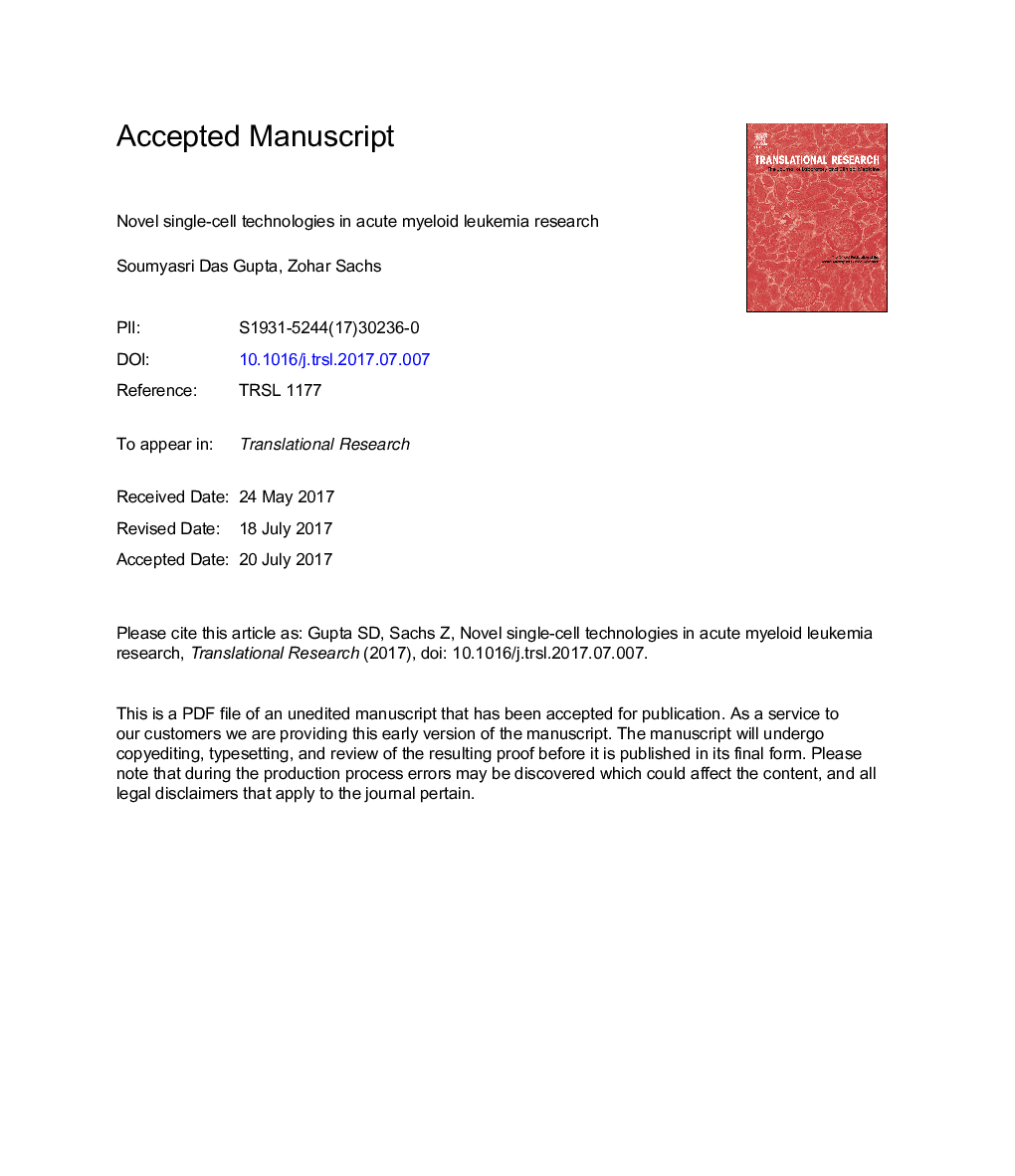| Article ID | Journal | Published Year | Pages | File Type |
|---|---|---|---|---|
| 8769068 | Translational Research | 2017 | 35 Pages |
Abstract
Acute myeloid leukemia (AML) is a lethal malignancy because patients who initially respond to chemotherapy eventually relapse with treatment refractory disease. Relapse is caused by leukemia stem cells (LSCs) that reestablish the disease through self-renewal. Self-renewal is the ability of a stem cell to produce copies of itself and give rise to progeny cells. Therefore, therapeutic strategies eradicating LSCs are essential to prevent relapse and achieve long-term remission in AML. AML is a heterogeneous disease both at phenotypic and genotypic levels, and this heterogeneity extends to LSCs. Classical studies in AML have aimed at characterization of the bulk tumor population, thereby masking cellular heterogeneity. Single-cell approaches provide a novel opportunity to elucidate molecular mechanisms in heterogeneous diseases such as AML. In recent years, major advancements in single-cell measurement systems have revolutionized our understanding of the pathophysiology of AML and enabled the characterization of LSCs. Identifying the molecular mechanisms critical to AML LSCs will aid in the development of targeted therapeutic strategies to combat this deadly disease.
Keywords
Related Topics
Health Sciences
Medicine and Dentistry
Medicine and Dentistry (General)
Authors
Soumyasri Das Gupta, Zohar Sachs,
